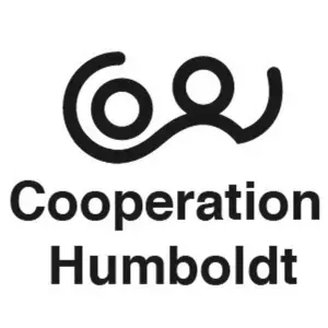# # #
Cooperation Humboldt release:
On Thursday, June 2, Cooperation Humboldt’s Street Outreach workers were present at the Samoa Boulevard pullout encampment in Arcata (formerly Soilscape Solutions) on the day that residents were forced to leave their camp or risk arrest. Upon learning about the eviction, our team worked diligently to help people prepare for relocation. We were able to mediate conflict between homeless residents and the Arcata Police Department to ensure that no one was arrested and everyone was treated with dignity. We also managed to help several individuals salvage their belongings and move to a new location. While we are relieved that this transition was able to take place without anyone being arrested, we also recognize that day as emblematic of the constant upheaval, trauma and insecurity that our unhoused neighbors face on a daily basis. As a community we must build long-term solutions and advocate for transformative change that goes beyond simply playing musical chairs with the lives of our fellow human beings.
As a community, we need to begin working on upstream solutions instead of just continuing to push people around from one unsanctioned place to another. Ending homelessness once and for all will require a coordinated community-wide approach to total economic transformation, to build a society where everyone has their needs met without exploiting people or the environment.
The repeated pattern in our community of forcible removal of people from the areas that they choose to live has only resulted in the perpetuation of one of our region’s biggest problems. For example, while we were helping a few individuals from the Samoa Boulevard encampment re-settle in an alternate location, business owners near that new location were already phoning in complaints to the police. It is evident that there are plans in the works for the eviction of the residents in several of the other large and well-established unsanctioned camps in Arcata, which will do nothing to help the people and only exacerbate the problem. Past evictions like the one at the Palco Marsh (Devil’s Playground) with the intention to, “destroy sense of comfort and entitlement,” failed to address the problem of homelessness, and instead, contributed to the traumatization and persecution of our homeless community members. The Palco Marsh eviction was determined to be unlawful, and some victims were paid damages. Law enforcement and municipalities need to abide by the case law established in Martin v. Boise.
We urge local governments and law enforcement to:
- Cease the eviction of unsanctioned encampments unless and until there are accessible, sanctioned places for all evicted people to live;
- Cease the dispersal and arrest of homeless people living with disabling conditions such as mental illness, PTSD, and substance use disorder;
- Provide adequate waste disposal and clean toilets for all residents regardless of their socioeconomic status, dysfunction, or behaviors;
- Increase funding and decrease crippling regulations for housing, healthcare, food security, street outreach, service centers, and employment preparation programs and projects;
- Concentrate large-scale funding and program development on broad-reaching upstream economic solutions.
At Cooperation Humboldt, we recognize that access to potable water, toilets, waste disposal, food, healthcare, and shelter are all fundamental human rights – not commodities or privileges that must be earned through specific behaviors or paid for with currency.
Regardless of questions of entitlement or enablement, every human being deserves to have their most basic needs met with dignity and respect - even if they are unwilling or unable to behave lawfully or engage productively with well-intentioned service providers. Mental illnesses and substance use disorders are disabling conditions resulting in impaired function - they are not behaviors. Homelessness is a symptom of our failing socioeconomic system, and while absolutely necessary, downstream projects like our Street Outreach project, which aims to address the immediate needs of homeless people are not solutions. Likewise, services like rapid re-housing – which must be offered without preconditions such as employment, income, absence of criminal record, presence of pets, or sobriety – transitional housing, and permanent supportive housing are all absolutely necessary downstream responses, not upstream solutions. Cooperation Humboldt fully supports the governments and organizations working tirelessly to provide and expand those essential services.
A housing crisis is often the result of a financial one. Current incomes are often much lower than is needed to comfortably pay average rental costs, leaving many people financially vulnerable to housing instability. Income support programs that can assist low-income people, such as Temporary Assistance for Needy Families (TANF) or unemployment compensation, help many people withstand economic crises. Often, however, people experiencing homelessness find these programs to be inaccessible and the benefits offered are often insufficient to help them achieve stability. Truly affordable housing development, rent stabilization, and programs designed to assist low-income people to increase their income are critical to supporting housing stability.
For the past year, Cooperation Humboldt’s Street Outreach team has been working closely with homeless members of our community to address their most pressing needs. The Street Outreach program is funded through an Emergency Solutions Grant for Coronavirus Response with the Department of Health & Human Services, and was formed through Cooperation Humboldt’s Community Health Worker Collaborative with the help of Eureka City Councilmember Leslie Castellano.
The Community Health Worker Collaborative builds independent Community Health Worker groups in close partnership with chronically underserved populations including people experiencing substance use disorder, people with extremely low or no incomes, Black, Indigenous, and people of color, LGBTQIA+ identifying people, and people experiencing mental illness and homelessness. The Street Outreach project is a compassion-based program that was designed under the direction of people currently or formerly experiencing homelessness; the program employs people in need to care for people in need.

CLICK TO MANAGE